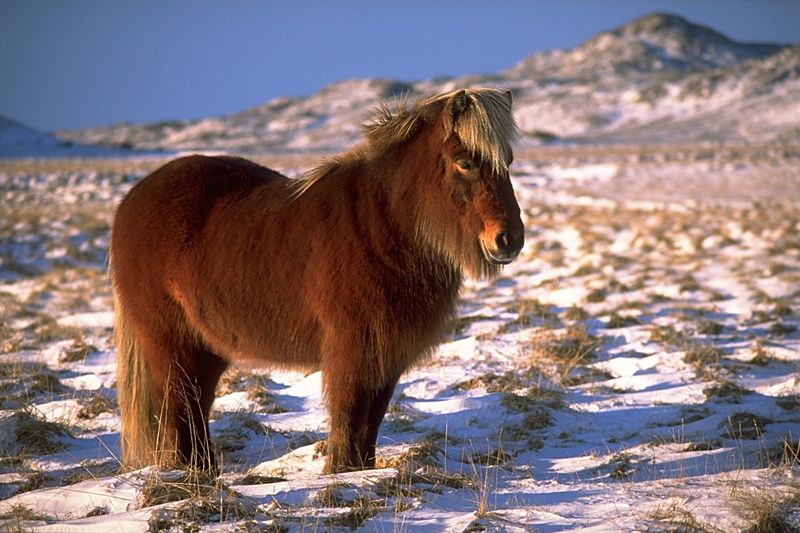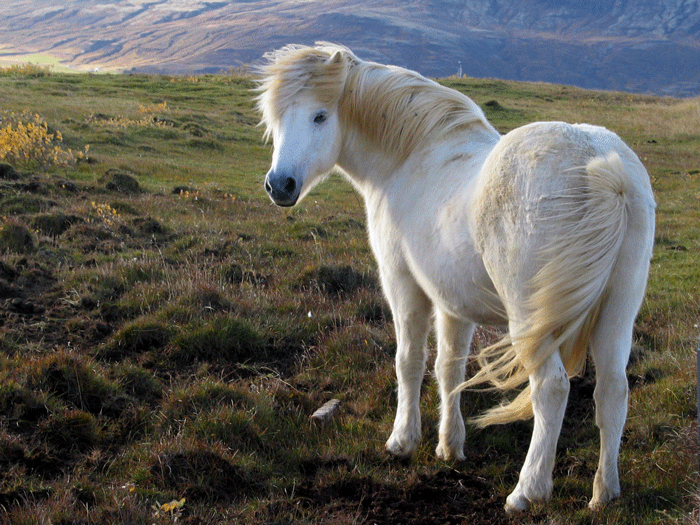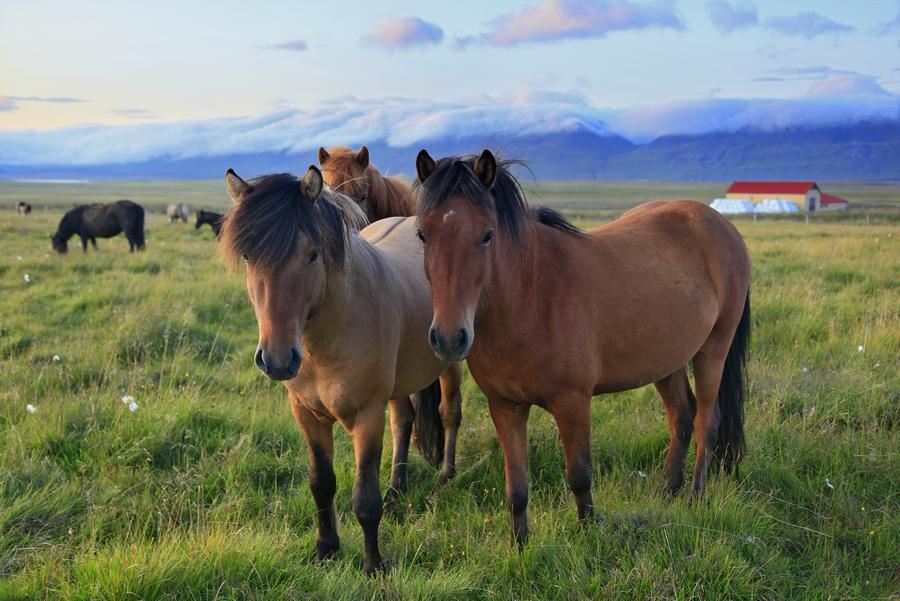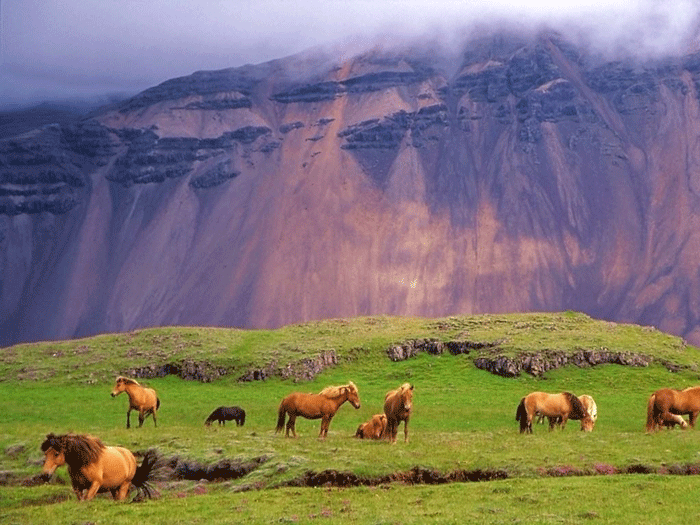



|
Icelandic Qualities
Icelandic horses are primarily used for riding, as pack animals, and as all-rounders. You can also see them in competitions and as harness workers. They are generally found in Iceland, more specifically noted in the area of Reykjavik. Well known for being easy to maintain, rough, yet still very agile creatures, this breed is loving and gentle but tough enough to handle the roughest of situations.
Icelandic Temperament
The Icelandic horse has a sweet temperament. They can be very friendly and easy to ride. Described by experts as docile and gentle, this breed does exceptionally well with little ones and can be used as an excellent riding horse due to their calmness.
Icelandic Appearance
The Icelandic horses stand at around fourteen hands when full grown. They bode a neat head, sloping shoulders, strong and forceful legs, and lots of muscles. Generally speaking, these horses can be bred in virtually any coat color and no one version is more popular than another. They also have long fetlocks and very well formed feet.
Icelandic Upkeep
The Icelandic horse are one of the easiest breeds to care for. They can generally fend for themselves, which makes them very desirable as a private pet. Farmers enjoy having them around simply for their work abilities and their ease of care. This breed can gain food supplies on their own and, living in Iceland, they can also reside in the coldest of climates with no infractions. No major health issues have been reported with their horse history.
Icelandic History
The history of the Icelandic horse breed starts in Iceland, as one would expect. One of the very breeds that has not been altered since the beginning of their creation, the Icelandic horses are one-of-a-kind. Most breeds can have other blood lines introduced as time progresses and they try to aim at making the breed either stronger, faster, or more beautiful, but not this breed. In over eight hundred years, there has never been any outside blood traits introduced into this style. They even have a rule in Iceland that if these horses should leave the area, then they do not return as they are not permitted to. Considered to be an attractive style of horse, the Icelandic horses were used primarily by the Vikings during the nineteenth century. They completed various tasks such as transporting people to receive medical care and swimming over the very dangerous and deep glaciers that are heavily present in the Icelandic area. In their native Iceland, there is no set word for the name "pony", thus this particular horse is known as just that, a horse. You can find them play fighting all over place as they are very friendly and youthful animals.
|